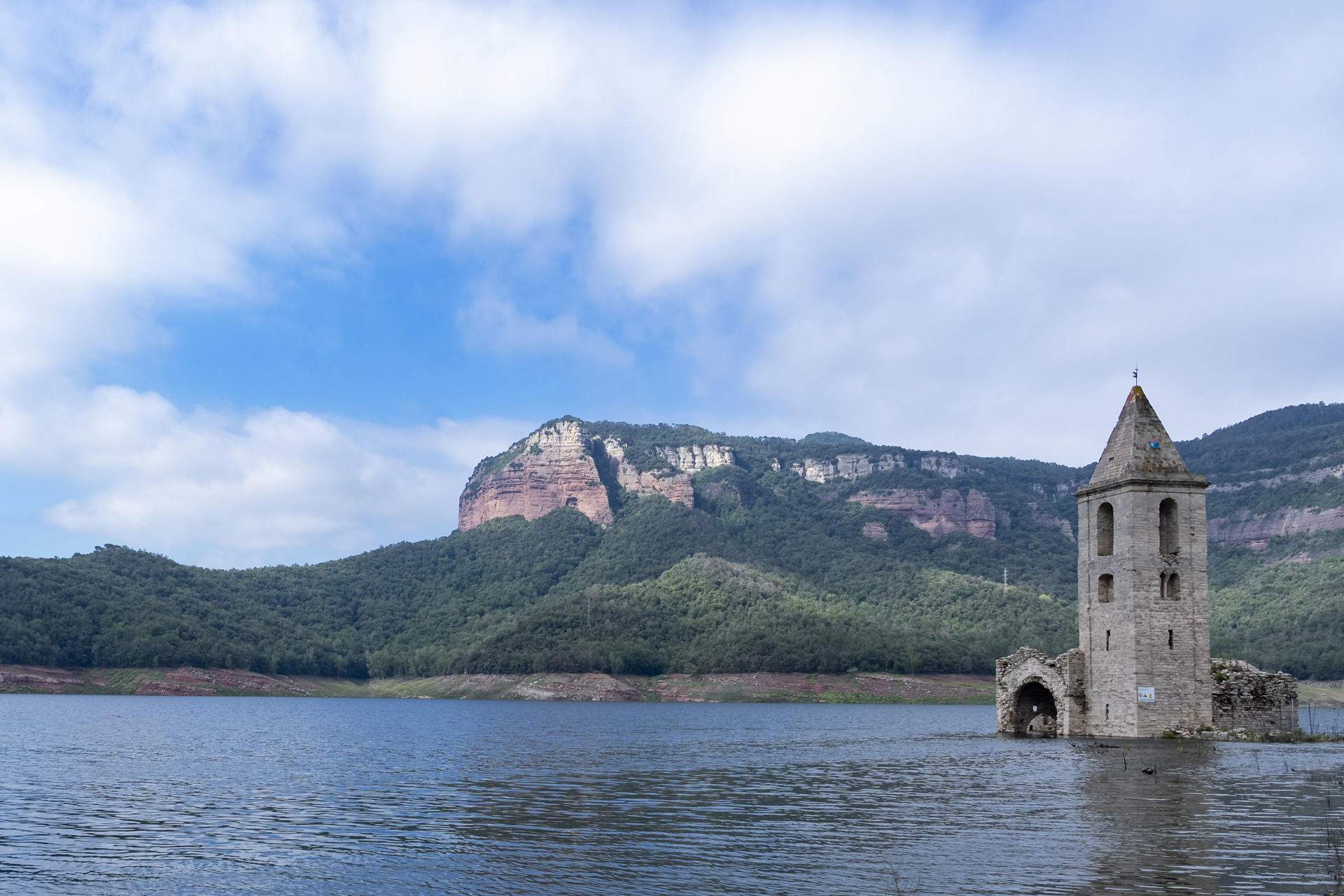Fewer water restrictions. The acting Catalan government has announced that the Ter-Llobregat catchment system, which supplies water to 202 municipalities in the Barcelona and Girona area, is in a position to change phases. And in a positive sense, because this area where six million Catalans lived has dropped down from Exceptional to Alert drought status. This is the lowest phase of restrictions on water use, and means that limitations imposed at municipal levels will be at the minimum, so several limitations that have been active until now will be lifted. The rains of the last few weeks have allowed the Ter-Llobregat reservoirs to gradually fill up, to the point where they have already exceeded 38.5% of their capacity - far from the minimum recorded at the beginning of March, when they were around 15% - and that is why the government has decided to take this step, even as Catalonia enters what are generally its driest two months of the year. On the other hand, the Darnius-Boadella system, in the Alt Empordà county, also improves its situation to ease from Emergency II status to Emergency I.
With this step, which will come into force at the beginning of next week, the Ter-Llobregat returns to the stage it was in November 2022. The acting climate action minister, David Mascort, announced the change of phase this Tuesday, noting that the "upward trend" of recent weeks is not yet over, according to official forecasts. In June alone, 37 cubic hectometres were added to the Ter-Llobregat reservoirs, an amount similar to that produced by the Tordera desalination plant in two years. For her part, the Catalan government spokesperson, Patrícia Plajahas pointed out that "it has rained more than expected", and that "the rain and the government's efforts" have made it possible to "get out of a practically catastrophic situation". However, she continued to sound a note of caution because the drought "is not over". Catalonia is still going into its hottest and driest season of the year with its internal catchment reservoirs at their second lowest levels since 2008 - last summer's were the lowest. .
The new restrictions
The phase change in the Ter-Llobregat basins will affect more than six million people who live in 202 municipalities located in the areas of Barcelona and Girona. Here's what's new in terms of restrictions, after moving to the Alert level and leaving Exceptionality behind:
- The water consumption limit per inhabitant per day rises from 230 litres to 250 litres (controlled by the municipality as an average).
- Agriculture will have to reduce use by 25% (and not 40%). In the case of livestock, the use of potable water is limited to the amounts necessary for watering and cleaning the animals.
- The ban on using water for the irrigation of gardens and green areas is lifted, and is now restricted to essential minimum amounts, with a maximum of 450 m³ per hectare and per month. In the case of private gardens, you can only water two days a week.
- The ban on fully or partially filling ornamental fountains and artificial lakes, except those with aquatic life, remains.
- With regard to public and private fresh water swimming pools, only those with a water recirculation system may be filled and refilled, as long as the quantities necessary to guarantee the sanitary quality of the water are not exceeded.
- The cleaning of vehicles is still limited to glass, mirrors, rear-view mirrors, lights and licence plates, except for dedicated car-wash establishments
- The ban on individuals cleaning of streets, pavements, facades and similar surfaces using water hoses remains, but it is permitted to clean these elements with scrubbing poles, bucket and sponge, or high-pressure cleaning systems.

